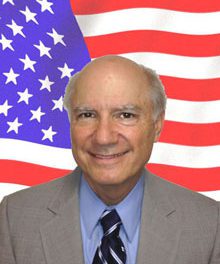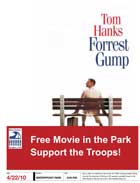A Conversation with BIFF honoree Andie MacDowell
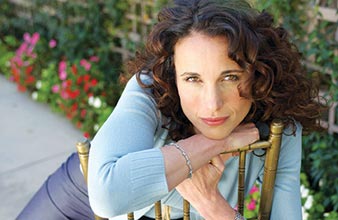
By Mark Shaffer
The Beaufort International Film Festival pays special tribute this year to Palmetto State native, Andie MacDowell. The former Elite model and long time face of L’Oreal grew up in Gaffney. MacDowell’s breakout performance in Steven Soderbergh’s debut feature, Sex, Lies and Videotape earned widespread critical acclaim and a slew of awards. The film helped to redefine American independent cinema. She is best known for films like Groundhog Day, Four Weddings and a Funeral, Michael and Short Cuts. She’s shared the screen with an A-list of leading men including Bruce Willis, John Travolta, Liam Neeson, Michael Keaton and Bill Murray.
Author and Beaufort resident Pat Conroy presents MacDowell with the inaugural Spirit & Pride of South Carolina Award at the 9th annual BIFF. I spoke to her by phone from Los Angeles. The timing was sheer bloody coincidence.
Mark Shaffer: First of all, Happy Groundhog Day. How does it feel to be a classic like that?
Andie MacDowell: Harold Ramis was an amazing director. And the movie is perfect; its one of those films that makes you feel really good and makes you think and have a good time and I love being part of it. It’s fun to walk down the street and everybody is so surprised to see me on Groundhog Day; it makes people happy (chuckles).
MS: AMC is running a marathon of the film as we speak.
AM: Yeah, it’s timeless; it’s ageless. Someone’s compared it to It’s A Wonderful Life, which is another amazing classic that’s still wonderful to watch: it touches you, it makes you cry, it’s got a similar vibe going on.
MS: Yes, I think that works. What was it like being on the set with those guys? I mean, you’ve got Chris Elliot, Bill Murray, Harold Ramis: was it like being the girl in the Mad Cap Boys Club?
AM: (laughs) No, you know, really I didn’t feel that. I felt like a comrade. We were all having a great time. The writing was wonderful and the location was beautiful and Harold was a very upbeat kind of person. There was also, because of Harold, a sense of wholesomeness. Harold was one of the greatest men I ever worked with. He was always doing a New York Times cross word puzzle with a smile on his face – that’s how smart he was. He would time himself. And, the set was very family oriented: his kids were around, my kids were around. It was a really wonderful, great set to work on. There was a surreal feeling of actually making the movie because it was so pleasant, and we were always on schedule; we got things done.
MS: You were just at the Santa Barbara film festival, right?
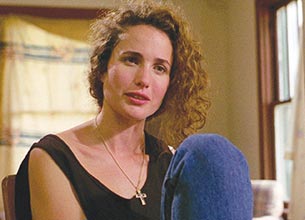 AM: Yes, I just showed up to do an introduction to a multi-faceted film clip of Michael Keaton’s because he was getting the Master’s Award.
AM: Yes, I just showed up to do an introduction to a multi-faceted film clip of Michael Keaton’s because he was getting the Master’s Award.
MS: It’s been a long time coming for him to get the recognition that he deserves. I guess it was pretty special to be a part of that.
AM: Well he got a great role! I mean that’s what it always takes: getting a role that let’s you show your abilities. The hardest part of being an actor is getting the roles that let people see what you’re capable of doing. And Michael hasn’t had one of those in a while, though he’s done many, many great roles. This one was something that really shook everybody up. Everybody was like, oh yeah, Michael Keaton. We’d forgotten how great he really is! He’s matured, and this role takes a mature man. He’s got all the equipment now, so yes, perfect timing.
MS: Let’s get to the Beaufort International Film Festival. First of all, congratulations on the first ever Spirit and Pride of South Carolina Award. What was your reaction to that and what does that mean to a kid who grew up in Gaffney
AM: Thank you! (laughs) You know the surreal thing is that Pat Conroy is going to give me the award. I wrote that to my sister (both laughing). That’s the big deal. I mean who cares that I get an award – Pat Conroy is giving it to me (laughs again)!
MS: Pat’s a friend of ours. He’s [an occasional] contributor to the magazine. And he’s actually a big fan of yours.
AM: That’s wonderful! See, how about that! That makes me feel special (laughs).
MS: Do you have a favorite by Conroy?
AM: I like his memoirs. I thought the latest one was great. There are so many characters that I know in his books. I know those people. That’s why it affects me so strongly. My family’s just as nuts as his, but I don’t have the courage to write about them. (Mark laughs) But, I want to be friends with my family (she laughs). I don’t know how he’s maintained his relationships. Plus, I’d have to tell the truth about myself and I don’t know if I’m willing to do that (laughs).
MS: I think Pat believes in the old adage that Southerners don’t hide their eccentricity, we sit it on the porch and pour it a cocktail.
AM: (laughing) Yes, we just let ‘em all hang out there! And the thing of it is his words. I want to know if he speaks the way he writes. Does he really talk like that?
MS: He does.
AM: Does he?
MS: He does.
AM: Oh well I can’t wait for that!
MS: He tells great stories.
AM: I imagine he does.
MS: You will have fun. And while we’re talking about this, is there a character that you identify with, or maybe wanted to play at some point?
AM: (Amused) A crazy southern woman with a lot of skeletons – that would be fun. I would love to play an outrageous southern woman who pretends to the world that she’s perfect, but we all know that she’s not. The audience gets to see the truth. That would be fun (laughing).
MS: You did an essay for my friend, Wendy Pollitzer’s book, South.
AM: Oh yeah, I did!
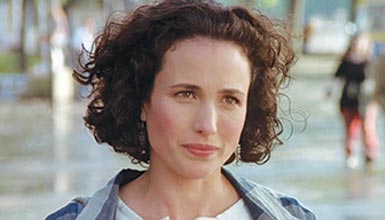 MS: A few of us from Beaufort, Mr. Conroy included, also contributed. I really enjoyed your essay. I found it interesting that you picked patience as such an important attribute. Has [that mind-set] helped you in your career?
MS: A few of us from Beaufort, Mr. Conroy included, also contributed. I really enjoyed your essay. I found it interesting that you picked patience as such an important attribute. Has [that mind-set] helped you in your career?
AM: Yes, because you can’t expect everything to happen at one time. I think especially in this day in time people are so used to having things happen fast. Patience is very important in order to be happy. Things don’t always happen fast: sometimes it’s better if things don’t happen fast.
MS: Much of the essay about was food, Southern food.
AM: I do love food (laughing). I went to stay at my manager’s house recently, and she doesn’t eat much. I have to watch what I eat. I’m careful. But God, that woman didn’t eat anything (laughing). She ate lettuce! I was about to die after a few days and all I could do was think about food! I don’t know – I grew up in a family where we ate breakfast and talked about lunch. That’s just the way I grew up. But luckily, I love vegetables. I’m sure I wrote about that because it’s the truth. I eat gobs of vegetables.
MS: When you’re headed back this way, what is it that you look forward to, food-wise?
AM: Well, honestly this season is going to be kind of tough, because I like all the fresh vegetables. I love going to all the vegetable stands, I mean, what y’all have there is unbelievable! I mean if you can go buy fresh lima beans – how crazy is that, you know? Everything is so good when it’s fresh and it’s local. It’s amazing. It’s the best.
MS: So while we’re on the southern food thing, what is it about boiled peanuts that the rest of the world just doesn’t get?
AM: Ah, well. I love boiled peanuts. I don’t know. I mean, it’s just… the softness? People can’t relate to that. I’m not a huge hush puppy person, though. I like hush puppies okay, but people don’t know what those are, either. The other day I heard somebody mispronounce “okra” and it just cracked me up.
MS: How the hell do you mispronounce “okra?”
AM: I don’t know, but they didn’t say it right and I was like, “Whaaat? What are you saying?” They felt bad they didn’t know how to say it. People like to tell me how slimy it is, but I like it steamed. I’m a freak. I can eat it fried or steamed; I quite like it steamed… a little bit of butter, a little bit of salt: it’s perfect!
MS: Let’s talk movies. Going back to Greystoke, about which there’s been a lot written. I’ve always thought you might have shared a similar experience with Jessica Lange in the aftermath of [the 1976 production of] King Kong that sort of served as a huge motivator.
AM: It’s probably something that she doesn’t want to talk about, either. “Let’s talk about King Kong,” when she’s achieved so much. I think I’m a really motivated person, you know? I left Gaffney. I didn’t know anybody. I had two thousand dollars. And I never took another penny from anyone. I just think I’m a really hard-working person and I’m extraordinarily brave. When I look back in hindsight, the thing that I can honestly say about myself is (pauses to consider)…
Pat Conroy’s probably got the best vocabulary of most people we would meet. I look up to someone who has an incredible vocabulary. I’ve worked on my vocabulary because I came from Gaffney, SC, and I had to go out into the world and compete with some pretty tough people: people who had a lot more foundation than I was given. I didn’t have an enormous foundation; I didn’t have a structure underneath me to hold me up. But I went anyway, and nobody helped me, and I did it all by myself. So, I would say that one attribute that I have that was my saving grace is that I am an extremely brave person. If I have to jump off a building, then I will fly. That’s the way I did it. No matter what happened to me, I just kept going. And I’ve had a multitude of things happen to me that I had to rise above. We all do.
Someone was saying to me recently that when much is given to you, much is expected of you, and that’s the truth. So I always give back. I love to do a lot of charitable work; I love to give back. But the truth of the matter is, nothing was given to me. I earned it.
MS: I think that’s a very southern kind of thing… when you are taught early to work for something you tend to appreciate it more.
AM: Yes, and I am a very hard-working person. I try at the same time to remain humble. There isn’t anybody that I wouldn’t talk to. I don’t talk to someone because I think they are worthy of my time; I think that everyone is worthy of my time.
MS: Let’s talk about Steven Soderbergh. Did you have an idea when you started to work on Sex, Lies, and Videotape that something special, as far as independent film, was happening there?
AM: I knew the script was extraordinary. I knew that I was going to have the opportunity to do some work that was going to, hopefully, change people’s perspective. The whole movie was done for a million dollars. And it was a little bit out of the box for the time period in which it was done. Watching it now is kind of hysterical, because at the time we were so avant garde that it was risky. It was edgy – not compared to today’s standards, but for then, it was. So I thought I was going to have something to show casting directors. That’s what I thought when he called me.
I didn’t go to Sundance because I was extremely pregnant with Rainey and I didn’t go to Cannes either, because I had just had her. So I kind of missed the whole hoopla. And when [Steven] called me and told me we’d won the Palme d’or it didn’t really even sink in. Not until later because I wasn’t around for all the chaos and people going crazy. So I was kind of unconscious about what was taking place, how it incredible it was, until I started getting all these job offers. And then I realized that a big transformation – a paradigm shift – has happened.
MS: You say that you were outside of the box on this, but can you recall a moment when you felt that you’d “arrived,” that you thought, “This is it?”
AM: Yeah. When Robert Altman called and gave me a job, when Peter Weir gave me a job. Particularly when Robert Altman called me and I was standing in my kitchen. He just called me up and asked if I wanted to be in his movie. Called me at my house (amused laugh).
MS: That had to be surreal.
AM: Ha! It was very strange to have a baby on my hip and a hand on the phone talking to Robert Altman. I hung up and thought, “Oh my God, I can’t believe this is happening.”
MS: I want to get back to Soderbergh. You look at his filmography and realize that he’s one of the most underrated guys in the business. I don’t know how that happens. Did you form a better connection with him because of his southern background – he’s from Atlanta, raised in Louisiana. Did that make a difference?
AM: I don’t know. I think he saw my potential. I’d been knocking on doors for a while. I actually read with Steven for [“Sex, Lies]. I didn’t read with anybody else, and he made his decision right then. He saw [the character] Ann, and he loved what I did. I had to come back in and read for the producers because they didn’t believe him, but then they listened to him. So I think he saw my potential as an actress. I don’t know that it had anything to do with being southern. But, I do think it helped because I understood Ann completely. Being from the South, I knew that woman. I wasn’t that woman. People thought I was that woman, which was interesting. But that’s fine, because that just means I’m very convincing. I wasn’t that woman, but I knew her.
MS: You know you’ve done your job well as an actor when people start to accuse you of being the character.
AM: Yeah, people are doing that to Michael [Keaton] right now, which is crazy. You 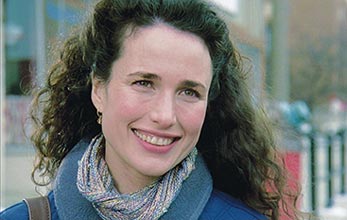 know that’s not Michael, he was brilliant but…
know that’s not Michael, he was brilliant but…
MS: And Four Weddings and a Funeral came shortly thereafter. That was a career changer once again for you.
AM: Yes. It was a completely different kind of character, and it was another small film that made a lot of money. That was a whole new genre of independent movie that became relevant after Sex, Lies, and Videotape: it changed people’s perspectives on how to make movies. And Four Weddings was also made for not much money, a little more than Sex, Lies but still not much, and it grossed an enormous amount. Again, that was a great independent movie. And it was very well written – just perfectly written – you know, it’s always about the script. It doesn’t matter who you hire or what actress you get, if you don’t have a great script you can’t make a great movie.
MS: You’re no stranger to the Lowcountry. You grew up in South Carolina and you’ve been here before. Besides the film festival, what’s on your “to do” list when you get to town?
AM: I have some great friends who are coming, and I’m hoping I get to see some movies. Most of the time, when I go to festivals like Sundance I end up working, so I don’t get to just go to a movie. So I’m hoping I get to watch some of the films and just enjoy being in a small town in South Carolina.
MS: That’s the idea. You did go to Sundance this year, didn’t you?
AM: I went to Sundance, but I didn’t see a film. I did a charity event there that I’ve been doing for seven years. One year I’m actually going to go and stay downtown by myself and just go to movies.
MS: This festival is truly small town. It all takes place under one roof, which makes it unique. And there will be a lot of filmmakers. The central idea behind this film festival when it was created nine years ago was to bring movies back to a place where lots of movies used to be made. So you’ve got a lot of young filmmakers attending with an interesting slate of films. How would they pitch you on a project to be shot in Beaufort?
AM: Would I like to work in Beaufort, is that what you’re saying?
MS: Basically, yeah.
AM: (big enthusiastic laugh) Yeah, I’d love to work in South Carolina! I’m actually trying to put something together, but they want to shoot it in Georgia because, you know, it’s all about making money. When they did Cold Mountain everybody in Asheville was throwing little temper tantrums because they weren’t going to shoot it there. (It was shot in Romania) Some young filmmaker came to my house and said something like they weren’t going to shoot it in Ashville because they thought the people there weren’t smart, or something like that. I looked at him and said, “That’s just not true! They’re not going to shoot in Ashville because they can save money.” It’s a business (laughs) and you know it all adds up. That’s why I’m working in Canada right now, because they can save money. I wish we had incentives. I wish we had incredible incentives in South Carolina. Or even in North Carolina. I don’t know why they quit doing that, or who calculates how it doesn’t bring in revenue or even how they come to that conclusion…
MS: We’ve got semi-competitive incentives.
AM: I can tell you right now that they will go to Georgia, because they can find places that look the same and they can save a lot of money. But, I would love to come to South Carolina.
Andie MacDowell will receive the Carolina Pride & Spirit Award from Pat Conroy on Saturday, February 14, at the USCB Center for the Arts. The BIFF Awards begin at 8 pm, with a cocktail reception at 7.
Get more info at beaufortfilmfestival.com
Complete festival coverage at lowcountryweekly.com. Follow us on Facebook, Twitter & Instagram.
Mark Shaffer’s email is backyardtourist@gmail.com

